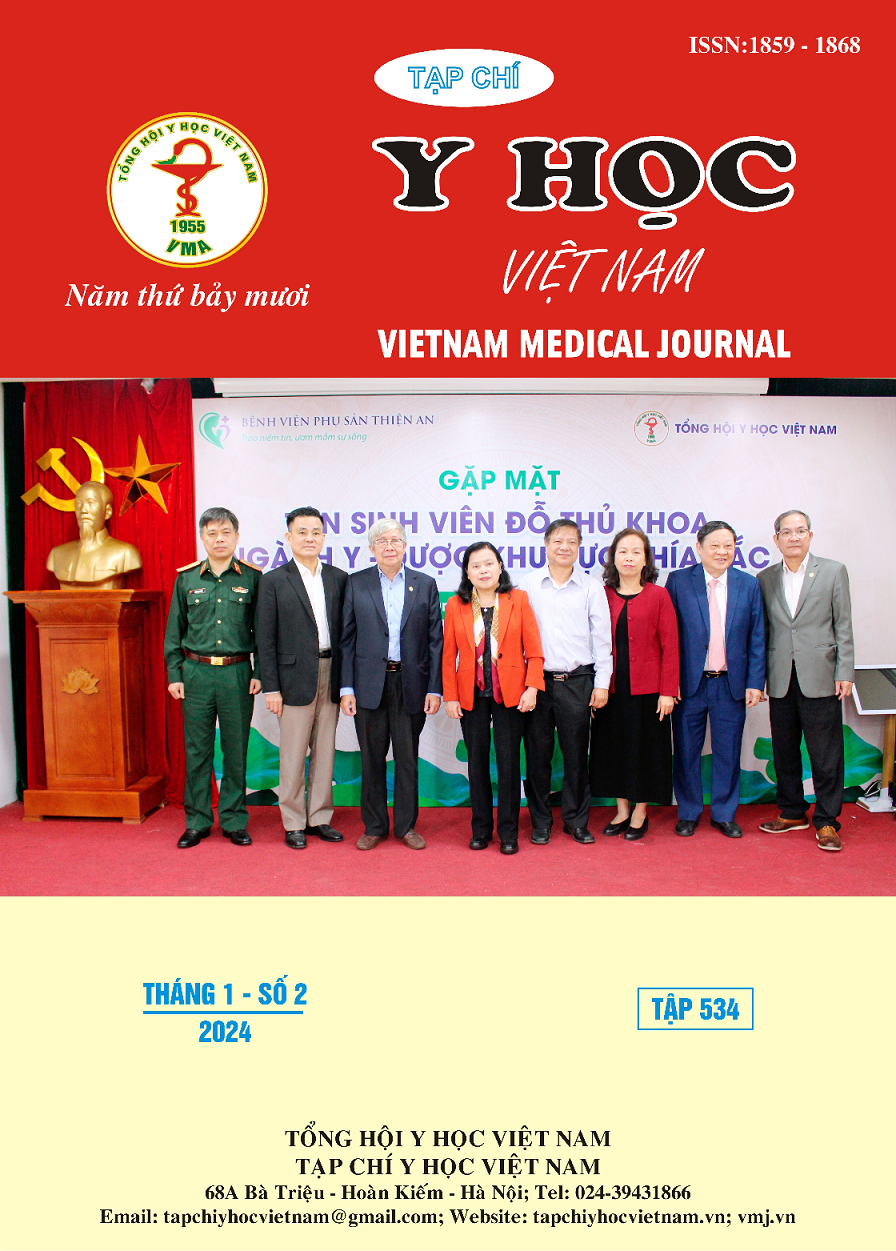LEVEL OF COGNITIVE IMPAIRMENT IN PATIENTS AFTER TRAUMATIC BRAIN INJURY SURGERY
Main Article Content
Abstract
Objective: To assess cognitive impairment in patients after traumatic brain injury surgery using the Mini Mental Status Examination (MMSE) at Thai Binh General Hospital. Methods: A descriptive cross-sectional study of cognitive status was conducted among 80 patients suffered from traumatic brain injury undergone surgeries at Thai Binh General Hospital during the period from June 2022 to June 2023. . Results: 80 patients including 69 males (86.2%), 11 females (13.8%); The ratio of males to females was approximately 6.27/1. The average age was 44.36±15.68 years old, the 56-65 age group had the highest rate of 33.8%. Occupation: farmer (51.2%), worker (32.5%). Traffic accidents were the most common cause (65.0%). The condition when admitted to the hospital was mild TBI accounted for (80%), moderate TBI amounted to 13.8%, and severe TBI comprised 6.2%. Patients with chronic subdural hematoma constituted (30%), epidural hematoma added up to (20%), and penetrating head injury made up (18.8%). The lowest was skull fracture composed (5%). When discharged from the hospital, postoperative patients had a general cognitive impairment of 77.5%, including mild (37.5%), moderate (30%), and severe (10%). Conclusion: The level of cognitive impairment in patients after traumatic brain injury surgery is relatively high. Therefore, there is a requirement for a comprehensive rehabilitation program after discharge from the hospital to improve the quality of life for patients, especially those with moderate and severe cognitive impairment.
Article Details
References
2. Nguyễn Kinh Quốc, Vũ Anh Nhị. (2005). Khảo sát thang điểm Mini-mental state examination (MMSE) trên người Việt Nam bình thường. Y học TP Hồ Chí Minh, 9, 121-126.
3. Nguyễn Văn Vy Hậu, Nguyễn Hải Thủy, Hoàng Minh Lợi. (2019). Nghiên cứu rối loạn thần kinh nhận thức qua thang điểm MMSE và MoCA trên bệnh nhân đái tháo đường type 2 có suy giảm nhận thức. Nội tiết và Đái tháo đường, 37, 74-82.
4. Cao Mạnh Long, Hồ Thị Kim Thanh, Trần Khánh Toàn. (2022). Giá trị của trắc nghiệm đánh giá trạng thái tâm thần tối thiểu (MMSE) trong sàng lọc sa sút trí tuệ ở người cao tuổi tại cộng đồng. Nghiên cứu y học, 149(1), 229-236.
5. Nguyễn Hương Quỳnh, Nguyễn Văn Tuấn, Dương Đại Hà, và cộng sự. (2021). Đặc điểm lâm sàng rối loạn ý thức ở bệnh nhân chấn thương sọ não. Y học Việt Nam, 507 (tháng 10, số 2).
6. Nguyễn Hoàng Ngọc, Lê Đình Toàn. (2015). Nghiên cứu tình trạng suy giảm nhận thức ở bệnh nhân sau đột quỵ não cấp bằng thang điểm đánh giá tâm thần tối thiểu MMSE. Thần kinh học Việt Nam, 14 - Quý IV/2015.
7. Vũ Minh Hải, Đoàn Văn Ánh. (2021). Một số đặc điểm dịch tễ lâm sàng bệnh nhân chấn thương sọ não điều trị tại bệnh viện đa khoa tỉnh Thái Bình: nhân 534 trường hợp. Y học Việt Nam, 503 (tháng 6, số 1).


